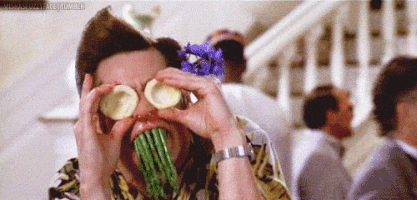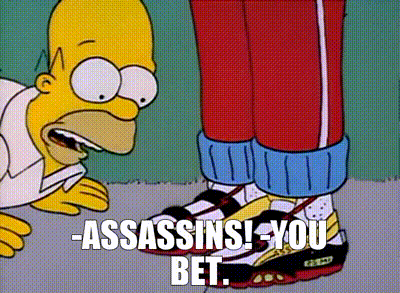Hey! What’s good? In the past week alone, I tried a lovely café with my partner, saw Parkway Drive put on one of the best live shows I’ve ever seen, caught up with some old friends for a group dinner, and started and finished The Creative Act: A Way of Being by Rick Rubin. I don’t know how I’m gonna top that this week, but not every week has to be full-on. Sometimes we just need to read in the sun with a coffee or watch a movie at home with your favourite ice cream, you know?
Another book I’ve read recently was Clear Thinking by Farnam Street founder Shane Parish. I’ve been following his weekly newsletter Brain Food for a few months now, so I was keen to learn where a lot of his ideas came from and there was a section of the book that really resonated with me. When discussing the value of mentorship, he explains the difference between being nice and being kind. It’s not an original concept, but it’s a good one and something that I’d like to explore with you.
Shane uses the classic example of telling someone when they have food stuck in their teeth (being kind) in comparison to ignoring it so as not to embarrass them (being nice). Which would you prefer someone do for you? This same analogy was proposed to me during leadership training at my job where we had to roleplay having difficult conversations with each other in the workplace. We may not like to hear these things, but it’s often the rude awakening that we need in order to change our ways.
He goes on to clarify that a kind person will give you critical feedback with your best interests in mind, whereas a nice person will tell you what you want to hear because they don’t want to hurt your feelings. Why do you think wealthy, ignorant CEOs like surrounding themselves with a boardroom of yes-men while the humble, innovative leaders question their fellow workers on the frontline for answers? If you really want to learn and grow from your mistakes, you need to consider what’s right, not who’s right.
Confrontation can be an act of love when executed appropriately. Look at drug and alcohol interventions, for instance. Speaking up and reaching out to someone you care about who may not realise, or care, that they have a problem in an effort to support their rehabilitation is the epitome of kindness. But we often don’t, even if we want to or believe that we should, because it feels uncomfortable. Ironically, growth itself usually is, so what’s the harm in showing someone that you love them by trying to help?
Of course, giving criticism can be just as hard as receiving it. A technique that I’ve acquired over the years from those who have done the same for me is what I call the Three Cs. Try sandwiching the criticism between a compliment and a concern. For example, I might say to a colleague in the storeroom that I love their new shoes (compliment), but that they should probably be wearing protective steel-cap boots (criticism) because I don’t want them to get hurt (concern). It helps to get the point across without sounding like a narc – or an arsehole.
So, how do we receive this kind of criticism? Firstly, try not to interrupt the other person when they’re talking. This means paying attention and not simply thinking of a rebuttal then impatiently waiting for your turn to speak. Of course, these can be emotional conversations, so being properly receptive and considerate takes practice. Secondly, repeat their points back to them succinctly and ask if you have understood them correctly. That way you’ll know if you’re both on the same page and it allows time for their feedback to sink in. Finally, devise a way forward, together, and determine a method for accountability. If it happens again, please see step one and repeat as necessary.
Some of the most valuable criticism that I’ve had as a creative person has come from my closest friends who aren’t afraid to tell me where I went wrong, or what I could improve. It’s always more useful than passive praise, so I try to get a range of opinions on my big ideas before launching them to consider external perspectives. For example, I sent my draft manuscript to seven different people for feedback – and I suggest that you do the same! This is also why I trust them when they say that something I’ve shared with them is really good. They see the potential in me when I get caught up in the details and they know that I can do better, so I strive to prove them right.
I’m still working on both giving and receiving constructive criticism myself, though I try to be kind as much as possible. Anybody can be nice, we all do it every day to save face and keep up appearances – at home, at work, down the street etc. But a simple act of kindness, like telling someone when they have food stuck in their teeth, will change your relationship with them for the better every time. And be kind to yourself, too. It’s easy to criticise ourselves when there’s no one else to hold us accountable. So, why not create something just for the fun of it?




